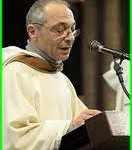DOMINICAN CHARISM, A WAY OF LIFE
(Interview with Fr. Bruno Cadore, MOP)
(The interviewer is DarÃo Menor for the weekly journal VIDA NUEVA, Madrid. His interview is entitled: “BRUNO CADORÉ, MAESTRO GENERAL DE LOS DOMINICOS.†Dario Menor comments: “Now Fr. Cadoré will have to guide through the next nine years the friars, nuns, sisters and lay persons that form one of the most important congregations of the Church. The Master of the Order of Preachers recognizes that the Dominican charism must be actualized but without provoking any fracture. According to him, ‘continuity must be sought’. He proposes ‘listening to the human beings’ as a solution for the scarcity of vocations, because ‘spirituality continues shaping the principal part of the life of a person’.â€)
(For the whole interview, conducted and published in Spanish, please go to VIDA NUEVA, n. 2.740, 5-11 February, 2011, pp. 40-41)
 Question: What does it mean to be a Dominican today?
Question: What does it mean to be a Dominican today?
Answer: It means to be a friar, a brother, and a preacher. We choose to be friars and brothers of humanity. We choose to be brothers of those who feel close in faith and in the Church, but also of those who are away from us. We believe that fraternity, brotherhood, is a gift of God to the world. St Dominic de Guzman made this choice in his time, when he began preaching. He decided to be close to the people thus giving an example of humanity and of life in community.
Question: Does the Dominican charism need renewal to be able to face modern society?
Answer: Yes, we have to actualize our charism to face a different culture – different here in the West as well as in Africa or Asia. Religions have also changed. Nevertheless, some basic things do not change: to be friends of the people; to be preachers and give the best of ourselves so that the people understand that God is something marvelous for them.
Question: Is religious life an option for the youth today? How do you explain the scarcity of vocations in the West?
Answer: In the first place, because perhaps the youth does not even know us. Religious life is not a way of doing things, but a way of living in community. In France, the last month of September we had ten novices in the two Dominican Provinces. This is not bad. But the numbers mean nothing. Even if we had one vocation only it would be equally good.
Question: The future of religious congregations is then in Asia and Africa?
Answer: Also in Latin America and in the United States. It can be in any place. For this we should continue believing that God wants to talk with humanity. We have to give him our trust. At times we think that people are not interested in spirituality, but we are wrong. This spirituality shapes the principal part of the life of a person. What we have to do is to listen to the human beings, to listen to their hopes.
Question: You studied Medicine and practiced as a pediatric physician in Haiti. Do you think that the field of health is a good field for evangelization?
Answer: Health is a good topic of conversation with any person: we are all interested in life… When you are sick you realize that the body is one unity of your body, your mind and your spirit. Health is something marvellous that offers to us a great opportunity for dialogue and a path to help persons become better. … Health is not the only way, but it is one option… Life, death and hope will always disturb us.
Question: How are the Dominicans developing “intercongregationality� What are your plans as the Master of the Order of Preachers?

Answer: The truth is I have no plans. I could not imagine that I would be elected the Master of the Order. Besides, the Master of the Order must have no plans, but listen and obey what the General Chapter of the Order says. This is the true authority of our Congregation. The Chapter did not discuss much on interrelationships among religious congregations. However, we may consider it in the future. Certainly relations among the different religious congregations, intercongregationality is important because it places the gift each one of us has received on the same current.
Question: What were the main questions of the last General Chapter that elected you as Master of the Order?
Answer: We talked much on the diversity of the Dominican family, composed of brothers, sisters and lay persons. We have to support each other to find our complementariness to preach.
Question: Do you agree with your predecessor who said that optional celibacy might benefit the Church?
Answer: We are religious, celibacy is our choice. We are the ones who have decided to adopt the Religious Life which is lived this way.

